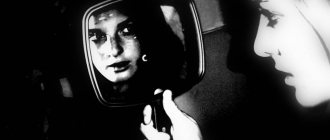Symptoms of social phobia
This disorder is often very figuratively called the disease of missed opportunities. Its early onset really significantly limits the development of natural talents and abilities, when the time of growing up with its hormonal fluctuations coincides with the expansion of contacts with strangers who are not part of the school and family circle.
Impressionable teenagers are very susceptible to strong worries about what opinion they will have about them, how well they will be accepted in their new environment. When it is necessary to establish social contact with strangers, this manifests itself:
- Hyperemia of the facial skin.
- Sweating profusely.
- Trembling of fingers and hands.
- Stuttering.
- Increased bladder urge.
- Nausea.
- Feeling of a hard lump stuck in the throat.
Social phobia is often accompanied by anticipation neurosis with obsessive thoughts about impending failure, fear of failing a public speech or exam, or disgracing oneself when meeting the opposite sex.
It is not surprising that patients try to avoid such situations and once again not attract attention at all. They often have other fears at the same time; they are well acquainted with the state of depression. Hippocrates wrote about such patients that they try to stay in the dark and not go out into the light, they pull their hats over their faces, as if hiding. They avoid companies for fear of being ridiculed or offended, or of doing something inappropriate in public due to their awkwardness.
Consultation with a psychologist
examination and treatment at home or in a clinic
rehabilitation until complete recovery we work around the clock
Call a doctor at home Leave a request and we will call you back in 1 minute
8
Or call
Article:
Social phobia is a disorder in which a child is so sensitive to the slightest change in his emotional state that he overly perceives and feels his awkwardness and embarrassment in situations where he needs to be around people or have contact with them.
In this regard, he develops an intense irrational fear of any socially significant situations - he is afraid of public criticism, condemnation, and even simply the attention of others. And he is always worried about saying or doing something that might embarrass him in front of the people around him. Social phobia (social phobia, social anxiety disorder) is often confused with timidity and shyness, but it is a more serious problem and requires a very sensitive and subtle approach.
Social phobia can manifest itself in two main forms. It can be aimed at actions associated with social contact, while the child is afraid to perform even the simplest situational tasks, such as, for example, being in a store and having difficulty choosing a product, publicly asking the seller for help. Social phobia can also be directed toward actions related to interpersonal influence, with the child avoiding social events or being afraid to go to school so as not to be visible and attract attention.
Factors causing social phobia in children
Social phobia can be caused by both external and internal factors. Here are some of the causes of social anxiety disorder in young children:
- Heredity. Yes, this disorder can be hereditary. If your child has an immediate blood relative who suffers from social anxiety disorder, there is a chance that it will be genetically passed on to your baby.
- Parental behavior. Believe it or not, you, the parents, are also one of the factors causing this disorder. Overly critical attitudes or overprotective parenting may contribute to the development of social phobia in your child.
- Low self-esteem. Children with low self-esteem tend to focus on negative aspects of their personality, making them more susceptible to this disorder.
- Negative experience. If your child has experienced any kind of psychological trauma, such as the death of a loved one or being ridiculed in front of the whole class, such incidents may lead to social anxiety disorder.
Symptoms of social phobia in children
Social anxiety disorder in children is not easy to detect because it can easily be mistaken for shyness, shyness or timidity. However, there are some obvious symptoms that help determine whether a child is suffering from social anxiety disorder or not.
- Just before going to a social event or school, your little one always feels unwell, such as stomach pain, excessive sweating, or shortness of breath.
- While present at public events, the child remains withdrawn, trying to become as if invisible, so that no one would notice him or talk to him.
- Reluctance to make friends or play with children your own age.
- If ordinary tasks such as reading aloud in class, talking to adults, or speaking in front of an audience cause extreme psychological stress in a child, he or she may be suffering from social anxiety disorder.
Treatment and help
Social phobia that lasts for a long time leads to depression. In children, the disorder can be treated with medications and non-drug treatments. The earlier a child is diagnosed with social anxiety disorder, the easier it is to treat. Below are some treatments that can help you cope with social anxiety.
- Breath. Teaching your child the art of calm breathing, which he should practice when anxiety strikes, will certainly help him remain calm. If this method is practiced regularly, it can work wonders.
- Medicines. There are antidepressants that are designed to treat social phobia. But they should only be used as prescribed by a doctor.
- Cognitive behavioral therapy. This is an effective and reliable method of psychotherapy, especially in the treatment of social phobia, which is designed to develop the child’s skills in overcoming crises and behavior in difficult circumstances, so that if feelings of anxiety and fear arise, he can change his way of thinking and cope with social anxiety disorder.
However, as we all know well, prevention is better than cure. Therefore, parents should make every effort to create a balanced and healthy environment for the child at home, which will help to easily detect changes in his behavior and nip the problem in the bud.
Causes of social phobia
Psychologists usually distinguish between two forms of such a disorder - specific and generalized.
In the first case, when providing psychological assistance, our clinic specialists have to deal with a limited range of problems. And treat patients who are afraid only of certain situations. For example, public speaking or interviews. But in the hall or in a crowd of applicants they feel fine. The generalized form covers all types of social contacts. It is characterized by an early onset and more pronounced symptoms, and the desire for self-isolation is accompanied by depression and misinterpretation of the behavior of others. Patients feel disdain and ridicule on the faces around them.
They find a certain flaw in themselves, which must certainly be subject to universal condemnation. They feel good only when alone, so they deliberately limit all their contacts. The causes of this disorder are interpreted differently:
- Genetic theory looks for relatives with the same disorder.
- Freud pointed to repressed sexuality and aggression.
- Behavioral theory is based on the connection of fears with specific objects, when victory over them is replaced by avoidance.
- Complexes imposed by family upbringing. This is where parental mistakes of excessive control and merciless criticism manifest themselves.
- Negative memories of public humiliation.
Diagnostics
Most scientists are inclined to believe that the fear of communication is associated with heredity, or with the characteristics of raising children in the family. If parents exhibit symptoms of this disorder, children are more likely to copy their parents' behavior in crowded places. Another problem is parental overprotection. In this case, the world around us is presented as a reality full of dangers, where bad people lie in wait for the child at every step. Another example of education that provokes social phobia is the formation of low self-esteem in a minor.
A psychologist at our center will help with severe social phobia in adolescents in order to avoid further development of the disease. It is at this age that adjustment of the psychological state is important: at school, it is especially difficult for social phobes during answers at the blackboard, in physical education lessons, and in all other cases of public speaking.
A qualified doctor, after a conversation with the patient, identifies a diagnosis on the basis of which treatment is prescribed. The fear of communicating with strangers is inherent not only in children, but also in adults. At Elizar-Med you will be provided with comprehensive assistance for comfortable adaptation to the social environment and a full life without fears.
Consequences of social phobia
Most people who know social phobia cannot cope with it without the participation of an experienced psychiatrist. Some patients follow the path of muffling their fears with alcohol or drugs, getting used to them and becoming dependent. Others need certain rituals to conquer themselves.
They cannot calm down without them and doom themselves to obsessive-compulsive disorder. Depression becomes an obsessive companion for most people. Social phobia is also accompanied by emotional instability and anxiety disorders. Later, this can result in suicidal tendencies and the addition of somatic diseases.
The duration and severe forms of this disorder naturally form a neurotic personality type. But in general, when contacting our clinic, the prognosis for complete healing and prevention of relapse is favorable. Psychotherapy helps patients gain stress resistance and better adapt to society.
Comes from childhood
Parents of those children who blush when speaking at children's matinees and are embarrassed to read a poem to visiting guests or to Grandfather Frost, as a rule, should not worry. Such modesty in children will either pass over the years or develop into ordinary healthy shyness. After all, natural shyness does not provoke social phobia at all.
The risk of developing social phobia is increased by completely different things. First of all, these are conflicts in the family or experiences of sexual violence. And also a difficult childhood, in which the child had to become an object of ridicule from his peers. But these are still rare things. Other motives are much more common.
Social phobias are more often obtained from children who suffered in early childhood either due to the excessive coldness of the mother or due to parental overprotection. If children do not receive enough maternal love or if the mother (even with the best intentions) constantly compares them with smarter and more successful children, then, as adults, such people will fear judgment and criticism from society. Parental overprotection is no better. Caressed, over-praised children, growing up and entering society, subconsciously expect the same admiration and approval from others. But often they don’t get it because, as a rule, they are nothing special. It is not without reason that they say that social phobia is a neurosis that arises as a result of a collision of inflated ambitions and low self-esteem.
Article on the topic
There is nothing to be afraid of! What to do with fears and phobias
Treatment of social phobia
The best results are obtained by the mixed use of drug correction and psychotherapy for a duration of 6 months. Psychologists play a major role in working with patients. The following methods are used:
- Cognitive-behavioral psychotherapy with restructuring of mental images.
- Empirical verification of realism.
- Hypnosuggestive therapy that changes the attitude towards groundless fears.
- Self-training.
In pharmacotherapy, preference is given to proven groups of drugs - SSRIs, MAOIs, SNRIs.
Excessive anxiety is reduced by prescribing tranquilizers such as Tranxen and Phenazepam. In some cases, there is a need for minor antipsychotics. To prevent fears from returning, Clonazepam and Carbamazepine are used. As a result of complex treatment, it is possible to overcome expectation neurosis, anxiety during social contacts, fear of social activity and disorders associated with social phobia.
What are Agarophobia and Anthropophobia? How are they different from social phobia?
Agarophobia is the so-called fear of open spaces. Often it is due to the lack of nearby houses (shelter) where one could hide or run away if necessary. That is, with agorophobia, discomfort is not associated with society. A person can calmly communicate and interact with people, but only if certain external conditions are met - for example, being indoors.
Anthropophobia is the fear of large crowds of people. Often this is fear and concern for one’s health.
The formation mechanism here is identical to that described above. According to some irrational criteria taken from the past, the subconscious “decides” that such circumstances can be dangerous.
Dating a social phobe
A person suffering from the disease of fear of society is called a social phobe.
Social phobes try to communicate little, even on the phone; they don’t want to work with people or go to a catering establishment where there are a lot of people. A social phobe is afraid of the contrived importance of the situation; he is afraid of responsibility before a new interlocutor, which is why he is so embarrassed to start a dialogue. He categorically does not want to communicate with strangers, in particular, even with beautiful girls, because he is afraid of showing his worst side when communicating.
Finding himself in an unfamiliar atmosphere in which he needs to communicate and show his best qualities to society, he begins to panic because of the difference in levels between him and his interlocutor. For example, the teacher calls you to the blackboard, it is difficult to imagine that in this situation a healthy person can have equal communication with the teacher, and even more so a socially phobic person. At the same time, the risk of being ridiculed and humiliated in front of the class is quite real, which will undoubtedly aggravate the disease.
Social phobia worries about the need to carry out any social activity. Hundreds of thoughts flow through his head, which develop his unsatisfactory mental state. People with social phobia avoid situations in which they feel outside their comfort zone.
How to behave if you realize that in front of you is a person suffering from social phobia? How to communicate with him?
“A person suffering from social phobia perceives criticism very sensitively, so it is important to be loyal to him,” noted FAN’s interlocutor. - At the same time, this does not mean that you need to feel sorry for him or give him advice on this matter. On the contrary, you can communicate unobtrusively and help in something if the desire is expressed by the person himself. Thus, it is important to be able to not impose your opinion and accept a person for who he is.”
pixabay.com/











